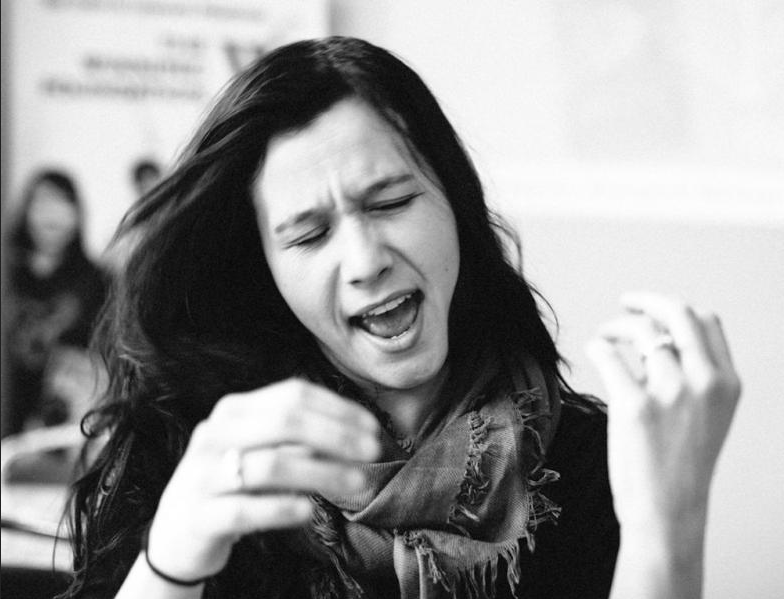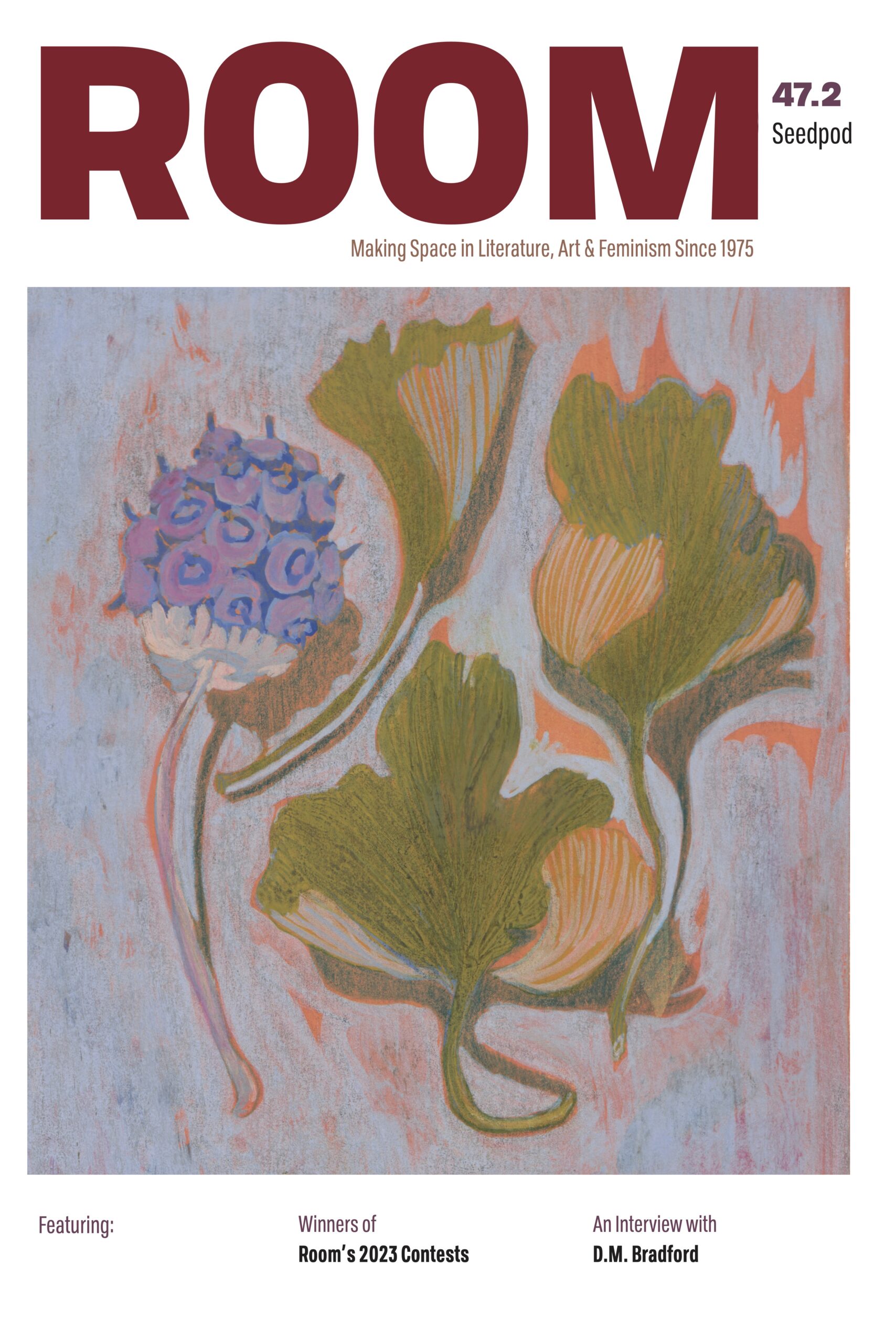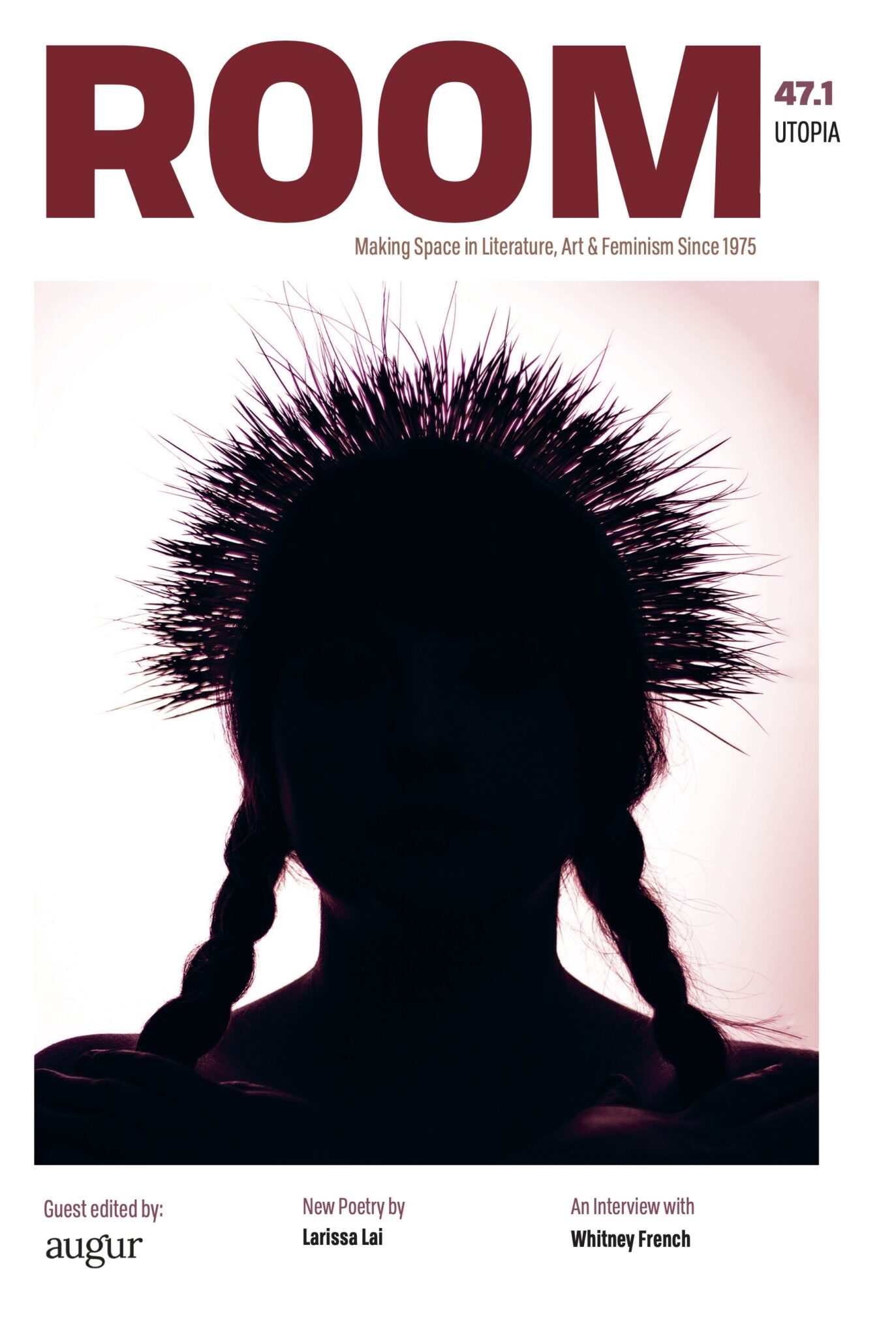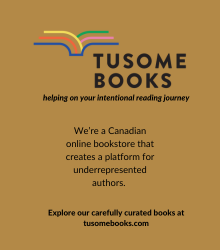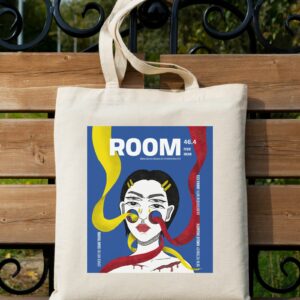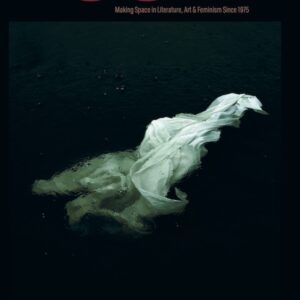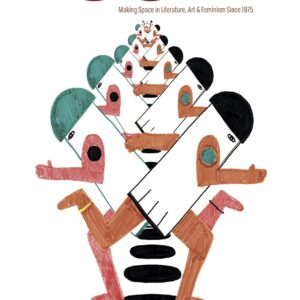Room collective member Jónína Kirton shares her list of Canadian Aboriginal writers whose work she has either come to know and respect or that are on her “to read” list.
I was both honoured and delighted when Room asked me to compile a list of Aboriginal women authors as part of the 2015 celebration of National Aboriginal Day. While this list is by no means a comprehensive list of all the great Aboriginal women writers in Canada, it includes 14 writers whose work I have either come to know and respect or that are on my “to read” list. I have been blessed to have the opportunity to know many of these writers on a personal level.
We are a relatively small but growing community. I have found gatherings such as the National Indigenous Writers Conference and the Ânskohk Aboriginal Literature Festival to be important as they have offered opportunities to meet and learn from Aboriginal women writers. The authors listed here are all accomplished women that have had, or will have, a major impact on Canadian literature in general and Aboriginal literature in particular. I hope you enjoy it and find yourself some new reading for your summer evenings.
~ All my Relations ~ Jónína Kirton
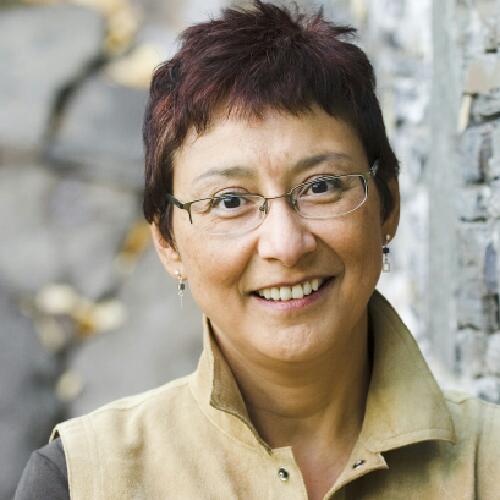 Marilyn Dumont
Marilyn Dumont
(Photo: LinkedIn)
I have never met Marilyn, but hope to one day. We are related by marriage, in a very circuitous way that is (no blood involved). My Aunt Joyce, by marriage, married her cousin. I may be mistaken but I believe they may have all gone to school together in Sundre, Alberta.
My first introduction to Marilyn’s work came many years ago when I told my aunt that I wanted to be a writer and she gifted me with a copy of an anthology titled, Writing From the Circle: Native Women of Western Canada (NeWest, 1990). Marilyn has a number of wonderful pieces in this book. I cherished the book and was inspired, albeit fifteen years later, to begin my writing journey. In researching for this article, I got shivers when I pulled the book off the shelf and the first thing I read was the following lines by Marilyn about being ready to be a writer:
the night-birds assure me
you’re ready,
that even though you’re silent
you’re ready,
that even though
you’re still
you’ve changed
and even though your reticent
you’re
resolute
like the grandfathers.
The great-great-great niece (I may be missing a “great” here) of Gabriel Dumont, she is an award-winning writer of Cree/Métis ancestry. She earned her M.F.A. in Creative Writing from the University of British Columbia. She has been the Writer-in-Residence at five Canadian universities and an advisor in the Aboriginal Emerging Writers Program at the Banff Centre.
Her work has been widely published in literary journals around the world. Marilyn’s first collection, A Really Good Brown Girl (Brick Books, 1996), won the 1997 Gerald Lampert Memorial Award presented by the League of Canadian Poets. It is in its 14th printing and a new edition A Really Good Brown Girl: Brick Books Classics 4 is now available from Brick Books; selections from it are widely anthologized in high school, college and university textbooks. Her second collection, Green Girl Dreams Mountains (Oolichan Books, 2001), won the 2001 Stephan G. Stephansson Award from the Writer’s Guild of Alberta. That Tongued Belonging (Kegedonce Press, 2007), her third collection, was awarded the 2007 Anskohk Aboriginal Poetry Book of the Year, and the McNally Robinson Aboriginal Book of the Year. Her most recent book, The Pemmican Eaters, was published with ECW Press in 2015.
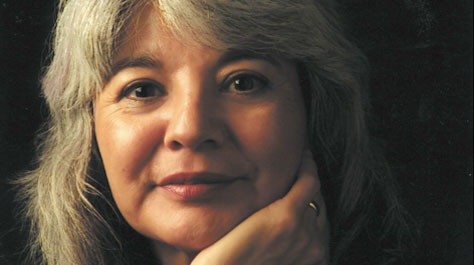 Louise Bernice Halfe (a.k.a. Sky Dancer)
Louise Bernice Halfe (a.k.a. Sky Dancer)
(Photo: prairiescene.ca)
I met Louise while attending the Emerging Aboriginal Writers Residency at the Banff Centre in 2009. She was one of our mentors and I was immediately struck by what an elegant and articulate woman she was. Her time with us was too brief as I am sure I had much more to learn from her. An excellent teacher and mentor to many, she was born on the Saddle Lake Reserve in Two Hills, Alberta. Her Cree name is Sky Dancer. She began writing in journals during high school. Louise made her debut in that same book that my Aunt Joyce gave me, Writing the Circle: Native Women of Western Canada (NeWest 1990). Even then, her work had a mystical quality that was grounded in First Nations teachings.
The sweetgrass is aged. It whispers beneath my fingers like eagles spreading their wings for flight. I am gentle, for it is a gift like everything else.
The wisps of smoke fill my nostrils. I inhale deeply…
Saskatchewan’s Poet Laureate, 2005–2006, Louise has published three books. Bear Bones & Feathers (Coteau Books, 1994) received the Canadian Peoples Poet Award, and was a finalist for the Spirit of Saskatchewan Award in that same year. Blue Marrow was originally published by McLelland & Stewart in 1998; a revised edition was released by Coteau Books in 2004. It was a finalist for both the Governor General’s Award for Poetry and the Pat Lowther Award, and for the 1998 Saskatchewan Book of the Year Award and the Saskatchewan Poetry Award. Her most recent work, The Crooked Good, was published in 2007 by Coteau Books.
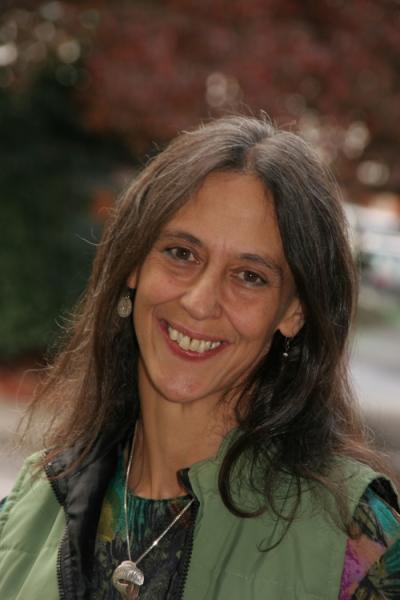 Joanne Arnott
Joanne Arnott
(Photo: kegedonce.com)
I first met Joanne Arnott when I attended a lecture at Simon Fraser University on Métis diaspora. There I learned that we both came from Manitoba and had roots in Portage la Prairie. One of the founding members of the Aboriginal Writers Collective–West Coast and an award winning writer herself, Joanne, has encouraged and mentored many developing authors, including myself. Her focus on collaboration and community is what drew me to her and her work. As the coordinator for the first National Indigenous Writers Conference in 2013, I had the opportunity to work closely with Joanne. As we discussed things, such as who was invited to present, it was like a Master Class in who’s who in the world of Aboriginal Literature. Her extensive knowledge of this and protocols, assisted me as I made my way into the world of Aboriginal authors.
The mother of six her writing is often sensual, always sensitive; as she straddles past and present she takes us to her poet breast offering much needed sustenance for this sometimes harsh world.
Her first book of poetry, Wiles of Girlhood (Press Gang 1991), won the Gerald Lampert Award in 1992. Her latest book, Halfling Spring: an internet romance (Kegedonce Press 2014), a collection of poems that explore love, intimacy and family with a focus on electronic connections was shortlisted for the 2015 Pat Lowther Memorial Award (League of Poets). Joanne’s other publications include, A Night for the Lady (Ronsdale Press, 2013), Mother Time: Poems New & Selected (Ronsdale Press, 2007), steepy mountain love poetry (Kegedonce Press 2004), My Grass Cradle (Press Gang, 1992), plus two chapbooks, the family of crows, Leaf Press 2012. Longing: four poems on diverse matters (Rubicon Press 2008). She has also written a book on writing and healing titled, Breasting the Waves, On Writing and Healing, Press Gang 1995. joannearnott.blogspot.ca
 Lee Maracle
Lee Maracle
Lee Maracle was one of the presenters at the National Indigenous Writers Conference in 2013. As the conference coordinator, I was pretty busy, but I made sure I attended her presentation, Living the Story, Writing from the Community, Authenticity, Protocol & Power. As a fairly new Aboriginal writer, I could not have asked for a more timely topic and in a short 2.5 hours Lee delivered exactly what I and many others needed to hear. Being in her presence is somewhat intimidating for someone quiet like myself, but I soon learned that she is passionate about teaching and supporting other Aboriginal writers. A gifted orator, she brings many years of experience not only as a writer but also as an activist. A role model for many Aboriginal women, she has spent much of her time doing healing and cultural reclamation work in Aboriginal communities in Canada.
Lee has served as Distinguished Visiting Scholar at the University of Toronto, University of Waterloo, and the University of Western Washington. She received the Queen’s Diamond Jubilee Medal for her work promoting writing among Aboriginal Youth. She received an Honorary Doctor of Letters from the St. Thomas University.
Her publications include: Memory Serves and Other Essays (NeWest Press, 2015), Talking to the Diaspora (Arbeiter Ring Publishing, 2015), Celia’s Song (Cormorant Books, 2014), First Wives Club: Coast Salish Style (Theytus Books, 2010), Will’s Garden (Theytus Books, 2 edition, 2008), I Am Woman (Press Gang, 2nd edition, 2003), Daughters are Forever (Raincoast Books, 2002), Ravensong (Press Gang, 2000), My Home As I Remember (Natural Heritage, 2000), Bent Box (Theytus Books, 2000), Sundogs: A Novel (Theytus Books, 1992), Bobbi Lee Indian Rebel, (Women’s Press Literary, new edition, 1990), and Sojourner’s truth & other stories (Press Gang Publishers, 1990). She is also widely published in anthologies and scholarly journals worldwide.
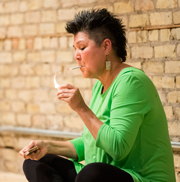 Janet Rogers
Janet Rogers
(Photo: Talonbooks)
Janet Rogers, a Mohawk/Tuscarora writer from the Six Nations band in Ontario, served as Poet Laureate of Victoria 2012 to 2014. I have seen this incredible spoken-word performance poet perform many times, and try never to miss her performances when she comes to Vancouver.
Born in Vancouver, she has been living on the traditional lands of the Coast Salish people in Victoria, British Columbia since 1994. Janet works in the genres of poetry, spoken-word performance poetry, video poetry, recorded poetry with music, and script writing. Her work often brings an element of ceremony that commands deep respect. Janet and Alex Jacobs created the Ikkwenyes or Dare to Do collective in 2011. Ikkwenyes won the Canada Council for the Arts Collaborative Exchange Award in 2012 and a Loft Literary Prize in 2013.
Janet hosts Native Waves Radio on CFUV and Tribal Clefs on CBC Radio One in Victoria. Her radio documentaries Bring Your Drum: 50 Years of Indigenous Protest Music and Resonating Reconciliation won Best Radio at the imagineNATIVE Film and Media festival in 2011 and 2013. She has published three poetry collections to date: Splitting the Heart (Ekstasis Editions, 2007), Red Erotic (Ojistah, 2010), and Unearthed (Leaf Press, 2011). Her poetry CDs Firewater (2009), Got Your Back (2012), and 6 Directions (2013) have all received nominations for Best Spoken Word Recording at the Canadian Aboriginal Music Awards, the Aboriginal Peoples Choice Music Awards, and the Native American Music Awards.
talonbooks.com/authors/janet-rogers
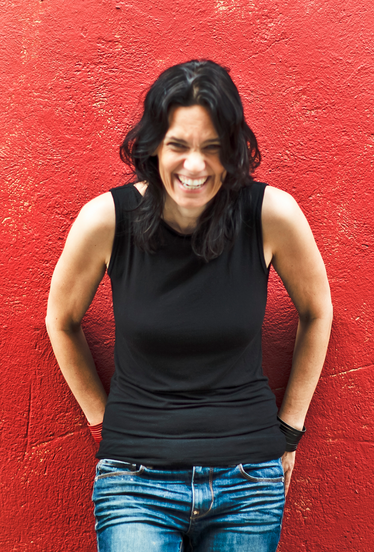 Leanne Betasamosake Simpson
Leanne Betasamosake Simpson
(Photo: leannesimpson.ca)
Leanne Betasamosake Simpson is a masterful storyteller that I once had the good fortune to hear read from her book Islands of Decolonial Love. Contemporary and relevant, this book examines the effects of colonization via stories that explore innocence, loss and just how hard it can be to live in this world made up of rules that do not work for many Aboriginal people. A researcher, writer, and educator, and a gifted writer, she has works in a wide range of genres including creative fiction, storytelling, poetry, spoken word and critical analysis. A literary and social activist, she is of Michi Saagiig Nishnaabeg and Scottish ancestry and a member of Alderville First Nation.
Leanne was named the inaugural RBC Charles Taylor Emerging writer by Thomas King, and she was also nominated for a National Magazine Award for her short story Treaties published in Geist 90. In 2012, she won Briarpatch Magazine’s Writing From the Margins prize for short fiction. Leanne is the author of three books; Dancing on Our Turtle’s Back, The Gift Is in the Making and Islands of Decolonial Love, and the editor of Lighting the Eighth Fire, This Is An Honour Song (with Kiera Ladner) and The Winter We Danced: Voice from the Past, the Future and the Idle No More Movement (Kino-nda-niimi collective).
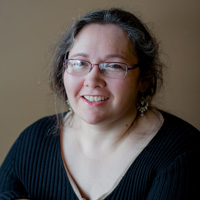 Andréa Ledding
Andréa Ledding
I was first introduced to Andréa by my poetry mentor, Betsy Warland who had met her while judging the John V. Hicks Long Manuscript Award for Creative Non-Fiction. At my first meeting with Andréa, I was struck by her gentle and witty ways. That same year, I had the pleasure of attending the Ânskohk Aboriginal Literature Festival, where I witnessed Andréa receiving her first prize award in the John V. Hicks Long Manuscript Award for her manuscript about the legacy of Batoche. She read excerpts from this important work. There are still so many stories to tell about the Métis, and Andréa is one that continues to add her voice. Her writing is reflective of her deep interest in our history, which she explores by creatively braiding the past and the present, offering us much needed teachings and healing. The mother of seven children, she was the 2012 recipient of the Dick and Mary Edney Masters Scholarship for International Understanding through the Humanities & Fine Arts. Her multilingual thesis focused on first contact in Canada.
Andréa, an inaugural member of the MFA in Writing Program through the Interdisciplinary Centre for Creativity and Culture (ICCC) at the University of Saskatchewan, is an active member of SAWCI (Saskatchewan Aboriginal Writer’s Circle, Inc.), which organizes the Anskohk Literary Festival. She was the recipient of Anvil Press/subTerrain Magazine’s Lush Triumphant Poetry Award for 2010 and has received grants from both the Saskatchewan Arts Board and The Canada Council for the Arts. Her writing has appeared in Eagle Feather News, The Prairie Messenger, many AMMSA (Aboriginal Multi-Media Society) national and regional newspapers and several literary publications, including the anthology, Canada’s Best Poetry of 2011 (Tightrope Press).
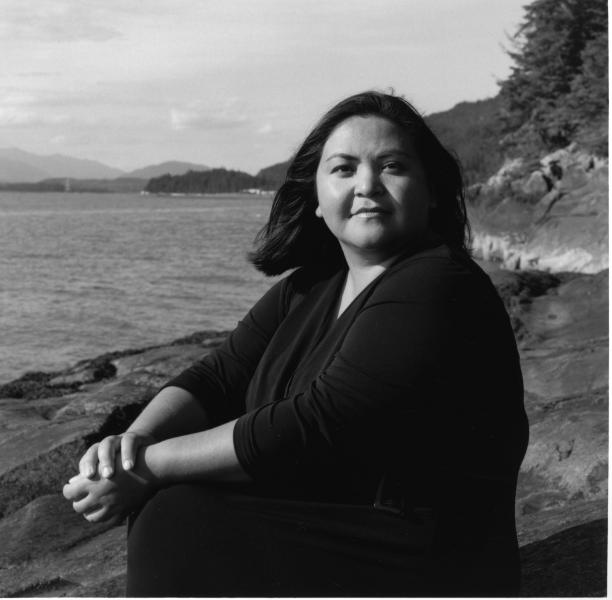 Eden Robinson
Eden Robinson
(Photo: smithers.bc.libraries.coop)
A Haisla-Heiltsuk writer, Eden’s books have not yet made their way to my book shelf nor have I had the pleasure of hearing her read. Monkey Beach and Traplines are on my “to read” list and I felt it was important to include her on this list. Doing this research, I learned that her literary influences while growing up were Edgar Allan Poe and Stephen King. This tells me so much and I just might have to get to the library this week to pick up her books.
Eden has been a Writer-in-Residence at the Whitehorse Public Library. A recipient of the University of Victoria’s Distinguished Alumni Award, she holds a Masters in Creative Writing from the University of British Columbia. She was the winner of the Winnifred Holtby Prize and a finalist in Governor General’s Literary Award for fiction. She was also nominated for BC Book Prize’s Ethel Wilson Fiction Prize.
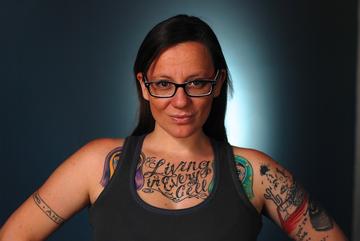 Cherie Dimaline
Cherie Dimaline
(Photo: theytus.com)
I met Cherie Dimaline, an Ojibway Métis writer and editor, first by email when I was arranging her travel as she was also a presenter at the 2013 National Indigenous Conference. I was gobsmacked when she read at the pre-conference event at the Native Education College. A powerful storyteller with a commanding presence, she was named the 2014 Emerging Artist of the Year, Ontario’s Premier’s Awards for Excellence in the Arts. Her first book, a collection of short stories, Red Rooms (Theytus Books), was first published in 2007 re-released in 2011 and 2013 and won the Anskohk Fiction Book of the Year Award. She is currently the Writer-in-Residence—Aboriginal Experience at Toronto Public Library. Her novel, The Girl Who Grew a Galaxy (Theytus Books, 2013) was shortlisted for the 2014 Burt Award.
cheriedimaline.blogspot.ca
@writeoncherie
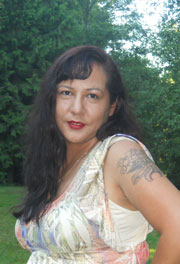 Wanda Kehewin
Wanda Kehewin
Wanda Kehewin is from the Kehewin Cree Nation in Alberta. An alumni of the Simon Fraser University’s Writers Studio and a founding member of the Aboriginal Writer’s Collective–West-Coast, she is a dear friend and a writer/orator that I greatly admire. Much of her writing is offered as sacred witness to the injustices she sees in the world. She finds writing to be a healing tool that not only helps to create understanding, but also that demands a response to the genocide of the First Nations. She has shared her work at many readings and is a regular presenter on Co-op Radio. Her work has been published in the Aboriginal Writer’s Collective–West Coast ‘s anthology, Salish Seas: An Anthology of text + image and in Simon Fraser University’s student anthology emerge. She received a World Poetry Empowered Poets Award at the World Poetry Canada international Peace Festival where she also launched her first collection of poetry, In the Dog House was published with Talon Books.
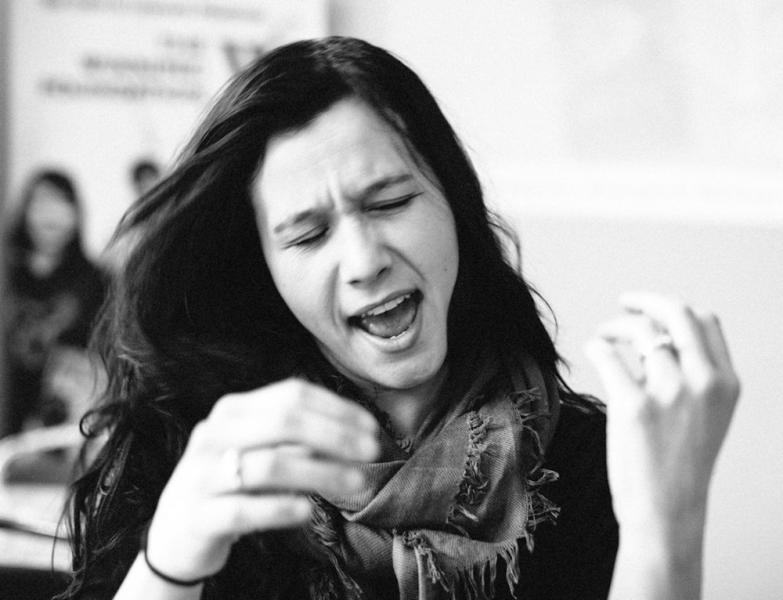 Katherena Vermette
Katherena Vermette
Katherina Vermette, a Métis/Mennonite writer of poetry and fiction., and I share a love of our home town, Winnipeg. I was first introduced to her writing when her first collection of poetry, North End Love Songs, J. Gordon Shillingford Publishing, 2012, won the 2013 Governor General Literary Award for Poetry. This book was also the 2015 selection for On the Same Page, Manitoba’s Book Club.
She holds a Master of Fine Arts from the University of British Columbia. A member of the Aboriginal Writers Collective of Manitoba and the editor of their last collection xxx ndn: love and lust in ndn country, her work has also been published in the literary anthology Manitowapow: Aboriginal Writings from the Land of Water (Highwater, 2012). She was the 2010-2011 writerscollective.org Blogger in Residence. Her most recent project The Seven Teachings Stories is a seven volume children’s picture book series, Portage and Main Press 2015.
 Bev Sellars
Bev Sellars
Bev Sellars’s award winning book, They Called Me Number One: Secrets and Survival at an Indian Residential School (Talon Books, 2012), is definitely at the top of my “to read’ list. She has presented this memoir which bears witness to the atrocities experienced in residential school to Canada’s Truth and Reconciliation Commission to be part of the public archive. A past chief of the Xat’sull (Soda Creek) First Nation in Williams Lake, British Columbia, she has a degree in history from the University of Victoria and a law degree from the University of British Columbia. She served as adviser for the B.C. Treaty Commission. She was first elected chief in 1987 and has spoken out on behalf of her community on racism and residential schools and on the environmental and social threats of mineral resource exploitation in her region.
Her book awards for They Called Me Number One include, 3rd Prize, 2014 Burt Award for First Nations, Métis, and Inuit Literature, shortlisted for the 2014 Hubert Evans Non-Fiction Prize (B.C. Book Prizes), winner of the 2014 George Ryga Award for Social Awareness in Literature.
talonbooks.com/authors/bev-sellars
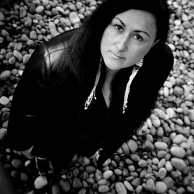 Sandy Scofield
Sandy Scofield
Sandy Scofield is an award winning composer, musician and singer/songwriter. I was a fan of Sandy’s music long before I met her. Working on the Sound side of Banyen Books and Sound, I frequently choose her CDs to brighten and uplift the store’s ambiance. I never dreamed that one day I would be in the same writing group. A member of the Aboriginal Writers Collective–West Coast she is a Métis from the Saulteux and Cree Nations. She is a gracious and surprisingly humble woman that has mentored many Aboriginal singer/songwriters. Like many Métis, music is in her blood. She comes from four generations of fiddlers, singers and musicians. She weaves her knowledge of traditional Métis music with her other areas of study, including jazz, African, Indonesian gamelan and electro-acoustic music. She has composed music and lyrics for dance, film, television and theatre. The highlight of these being the Welcoming Song for the 2010 Winter Olympics Opening Ceremonies in Vancouver. She has won many music awards including Best Songwriter (Aboriginal) Canadian Folk Music Award in 2007. She has won five Canadian Aboriginal Music Awards and received three Juno nominations.
“Scofield layers substantial and sometimes political lyrical concerns of life and living over top of some pretty varied musical styles, from pop and rock to folk, country, and jazz. She mixes aboriginal chants with toy pianos and other thrift-shop noisemakers, emerging with a sound that is uniquely foreign, yet at the same time engagingly accessible.”
—Ottawa Citizen, Bruce Deachman
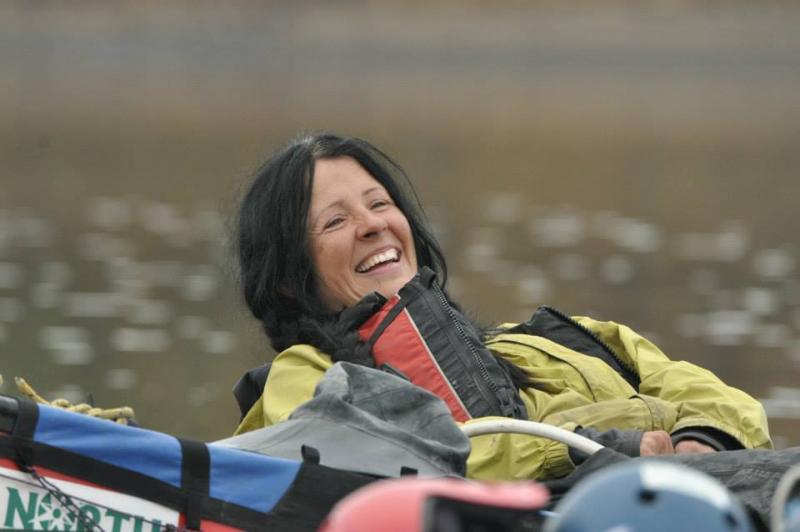 Carleigh Baker
Carleigh Baker
(Photo: Joel Luet)
Carleigh Baker and I share a few things. We are both graduates of the Simon Fraser University’s Writer’s Studio and we are both Métis/Icelandic writers who live in Vancouver. I cannot tell you how excited I was to meet another Icelander who was also Métis. Carleigh is no bullshit kind of gal with a love for rabbits… so don’t let her catch you with your good luck rabbit’s paw. She is an impressive writer; one that also happens to write literary reviews for The Globe and Mail, EVENT, and The Malahat Review. I am happy to call her friend.
A past winner of subTerrain‘s Lush Triumphant award for fiction, her work has also appeared in Ricepaper and Joyland. Her short story, War of Attrition, was published on Joyland Vancouver, and was nominated for the 2014 Journey Prize.
She is a contributing artist for the Peel project, a documentary about conservationism and Canadian identity. This project involved a 500 kilometre canoe expedition through the Peel River Watershed in the Yukon and Northwest Territories. An art exhibit based of the trip, including poetry and sound art by Baker, will tour nationally in 2016.
carleighbaker.com
@CarleighBaker
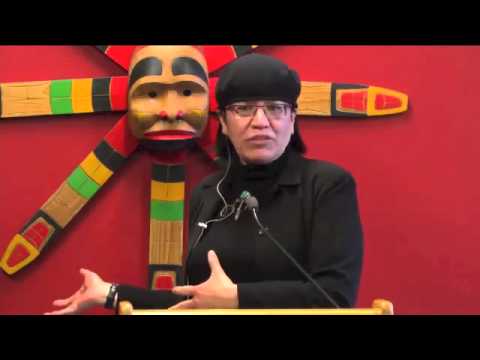 Michelle Sylliboy
Michelle Sylliboy
(Photo: YouTube)
Michelle Sylliboy, a Mi’kmaq poet was born in Boston, Massachusetts but raised in traditional Mi’kmaq territory, We’koqmaq First Nation, Cape Breton. Michelle is another of the founding member of the Aboriginal Writers Collective–Westcoast. She is a powerful orator and spoken-word artist. Her words can hit you in the gut with their intensity and then in the next breath, stanza or poem take you into the world of Spirit and healing. Kind of a one-two punch. One that is much needed in this world.
She has a Bachelor of Arts from Emily Carr and a Master of Education from Simon Fraser University. A committed activist she works to create opportunities for dialogue. She has supported many Aboriginal writers through her work with the Aboriginal Writers Collective – West Coast. Her work is featured in, Salish Seas: An Anthology of text + image, which she assisted in the production of with other members of the Aboriginal Writers Collective–West Coast. Her first book, which was edited by Chrystos, a well known, self educated writer of Menominee and Lithuanian/Alsace ancestry, will soon be welcomed into the world.
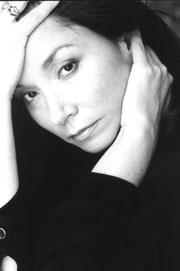 Marie Clements
Marie Clements
I met Marie Clements when she was the Writer-in-Residence at Simon Fraser University. Upon learning that a Métis woman held that position I quickly submitted my ten pages of poetry. At our meeting she indicated that she was a playwright not a poet but that she found my work intriguing calling it “dark and delicate”. Two words I have hung onto and used frequently since that day as the descriptor fit so well. I hold my hands up to her in gratitude as she kindly offered a referral to her publisher Talon Books which resulted in the publication of my book, page as bone ~ ink as blood, in 2015.
Marie is an award-winning performer, playwright and director who has been presented on stages across Canada, the United States and Europe. She is the founder of the Vancouver-based First Nations production company, urban ink productions that her website says “creates, develops and produces Aboriginal and multi-cultural works of theatre, dance, music, film and video.” She received a BC Film Commission fellowship award to make the film adaptation of her stage play, The Unnatural and Accidental Women. Her writing credits include the television series, Da Vinci’s Inquest. Her stage play, Burning Vision, won the 2004 Canada-Japan Literary Award, it was a finalist the 2003 Governor General’s Literary Award for Drama and it was nominated for the 2002 Jessie Richardson Award for Outstanding Original Play. The Unnatural and Accidental Women won the 1998 Jessie Richardson Awards, P.T.C. Award for Outstanding Original Play in Development. Now Look What You Made Me Do, was a Finalist for the 1998 Sundance Screenwriting Competition and was Short-listed for the 1997 Praxis Screenwriting Competition.
Her plays have all been published with Talon Books and they include: Tombs of the Vanishing Indian (2012), The Edward Curtis Project: A Modern Picture Story, (2010), Copper Thunderbird (2007), The Unnatural and Accidental Women, (2005) and Burning Vision (2003).
